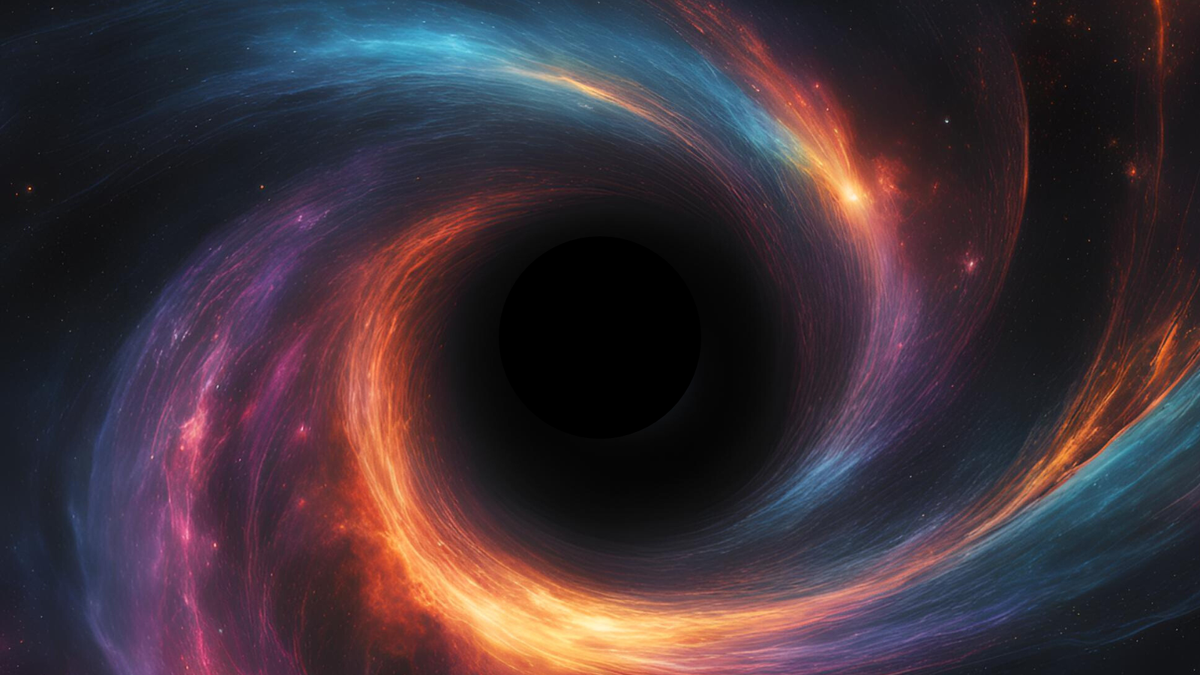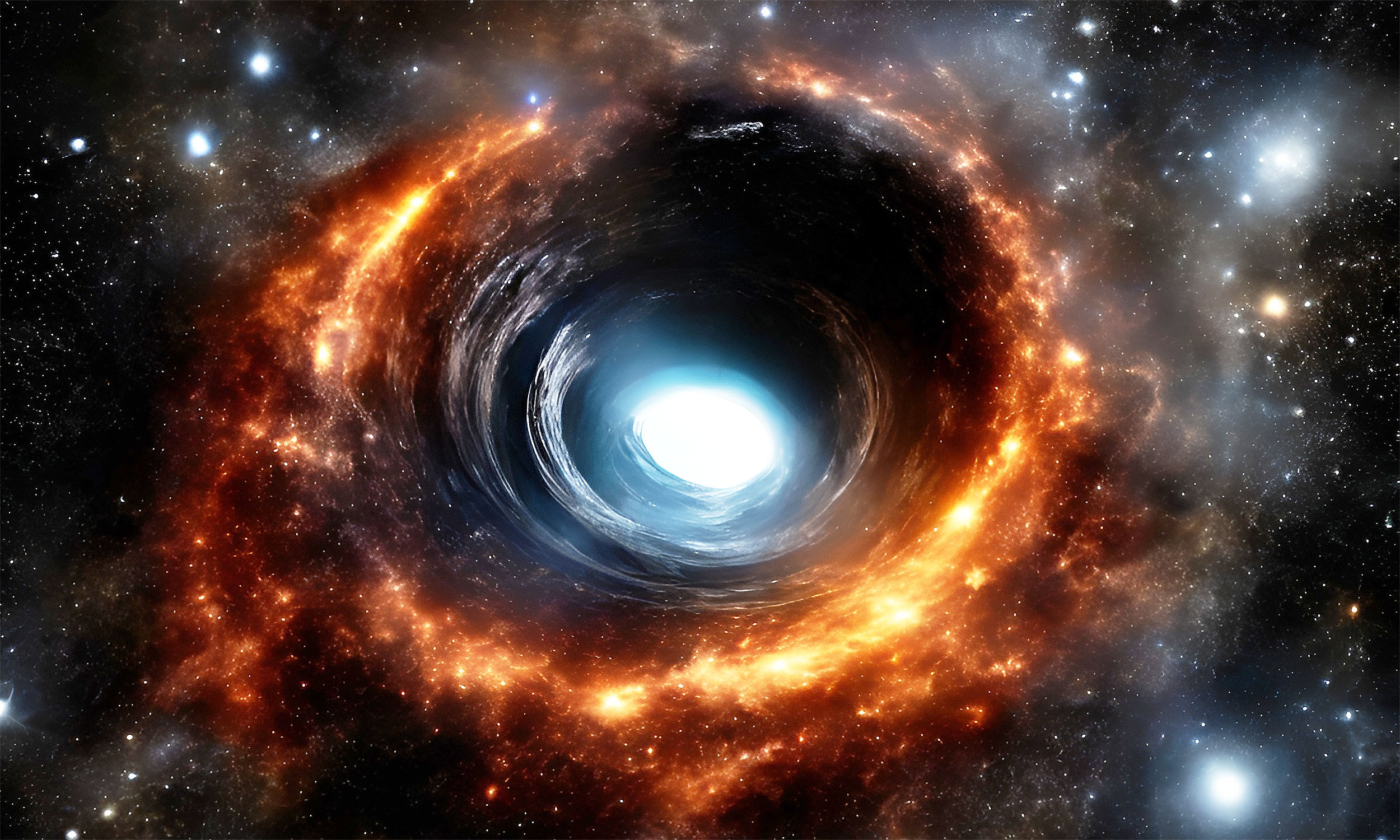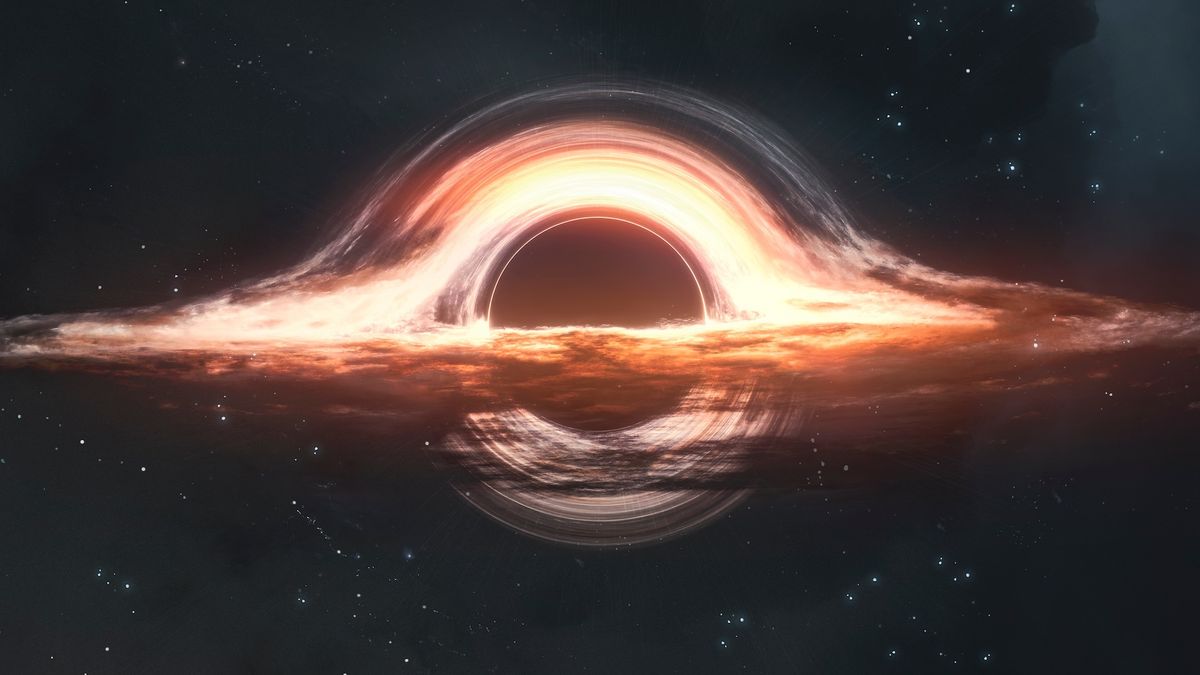According to latest Black Holes news, a study published in the Journal of Cosmology suggests that black holes might hold the key to understanding dark energy, a force that accounts for the majority of the universe’s expansion.
Researchers, led by Gregory Tarlé from the University of Michigan say that black holes may not only be connected to dark energy but could also be contributing directly to the universe’s accelerating expansion.

Also Read: NASA Crew-8 Astronaut Released from Hospital After Return From ISS
Dark energy constitutes about 70% of the universe. However, scientists know little about its origin or nature. Approximately 5 billion years ago, dark energy began to dominate, driving the acceleration of the universe’s expansion.
Before this, matter and gravity reigned slowing the initial expansion from the Big Bang. Researchers have struggled to pinpoint how this shift from a matter-dominated to a dark energy-dominated universe occurred.
According to latest Black Holes news, Only 5% of the universe consists of ordinary matter, which includes stars, planets, gas and even humans. About 25% of the universe is dark matter, a form of matter that doesn’t emit light and interacts weakly with regular matter.
The remaining 70% is dark energy, a force driving the universe’s accelerated expansion. Understanding this force has been a goal of cosmology and this new theory links it intriguingly to black holes.
Dark energy was first theorized to explain why the universe is expanding faster over time. According to current models, dark energy has been a part of the universe since its early inflation phase, around 13.8 billion years ago.
Researchers are investigating if black holes could be the reservoirs or sources of dark energy.
Black holes are known for their gravitational fields, similar to those theorized at the beginning of the universe. Gregory Tarlé and his team propose that black holes might have properties that mirror the conditions during the universe’s inflation period.
If true, it could mean black holes contain clues about the origins of dark energy and its impact on cosmic evolution.
The researchers suggest a reverse Big Bang effect within black holes. According to Tarlé, the gravitational collapse of a massive star could convert matter into dark energy.
This process, resembling a little Big Bang in reverse hints that black holes might generate dark energy during their formation.
According to latest Black Holes news, Observations from the Dark Energy Spectroscopic Instrument were pivotal in this research. Located on the Mayall telescope at the Kitt Peak National Observatory in Arizona, Dark Energy Spectroscopic Instrument’s 5,000 robotic eyes capture images of distant galaxies.
Using Dark Energy Spectroscopic Instrument, scientists analyze tens of millions of galaxies to study the expansion rate of the universe over time. By examining this data, they found a correlation between the number of black holes created by dying stars and the increase in dark energy in the universe.
The study notes that as more massive stars die and form black holes, the amount of dark energy appears to increase proportionally.
Kevin Croker, a lead author from Arizona State University says that this correlation strengthens the hypothesis that black holes could be the source of dark energy.
This new black holes news relies on direct observations and data. Previous theories about black holes and dark energy focused on black hole growth rates, but this study considers the birth of black holes.
According to Duncan Farrah from the University of Hawai‘i, the findings suggest that newly formed black holes might influence the universe’s energy balance by adding to dark energy.
Also Read: Fossil Discovery of Oldest Tadpole Unveils Insights into Amphibian Evolution
According to latest Black Holes news, the Dark Energy Spectroscopic Instrument located at the Kitt Peak National Observatory, DESI uses 5,000 robotic eyes to survey galaxies and quasars, constructing a 3D map of the universe spanning 11 billion light-years.
Dark Energy Spectroscopic Instrument’s first-year data suggest that dark energy density may not be constant but instead could be changing over time.
When comparing Dark Energy Spectroscopic Instrument data with the timeline of black hole formation, scientists noticed a pattern, as black holes formed, dark energy levels rose in tandem. This finding aligns with the theory that black holes might be a source of dark energy.
Earlier this year, the team’s initial study explored how the expanding universe impacts supermassive black holes in elliptical galaxies. They hypothesized that if all black holes grew similarly, they might collectively account for today’s dark energy density.
According to latest Black Holes news, In this latest research, scientists applied DESI data to compare dark energy’s behavior over time with black hole formation, providing empirical support for the cosmological coupling hypothesis.
In the universe’s infancy, dark energy likely triggered rapid expansion or inflation. Tarlé speculates that a similar process might occur within black holes, transforming matter back into dark energy in a reverse Big Bang scenario.
This theory may even redefine black holes’ cores, eliminating the concept of a singularity and aligning with Einstein’s preference to avoid singularities as flaws in gravitational theory.
At the theoretical core of black holes lies a singularity, a point where gravity is infinitely strong and physics breaks down.
However, cosmological coupling with dark energy could sidestep this issue. Einstein disapproved of singularities, seeing them as a limitation of his gravitational theory. This cosmological coupling model, if validated, could present a way to resolve this issue elegantly.
According to latest Black Holes news, Black holes might be capable of coupling with the expanding universe, allowing them to grow and in turn, contribute to the universe’s expansion.
Croker’s team theorizes that this coupling could help accelerate cosmic expansion over time. This proposition has turned the question of black holes and dark energy from a theoretical matter into a quantifiable one.
By analyzing data on the universe’s expansion rate, the researchers noticed an intriguing alignment between the birth rate of black holes and the rise in dark energy.
This link bolsters the notion that black holes might play an active role in the increase of dark energy.
Also Read: Scientists Use Paleo-Inspired Robotics to Resurrect Extinct Animals





